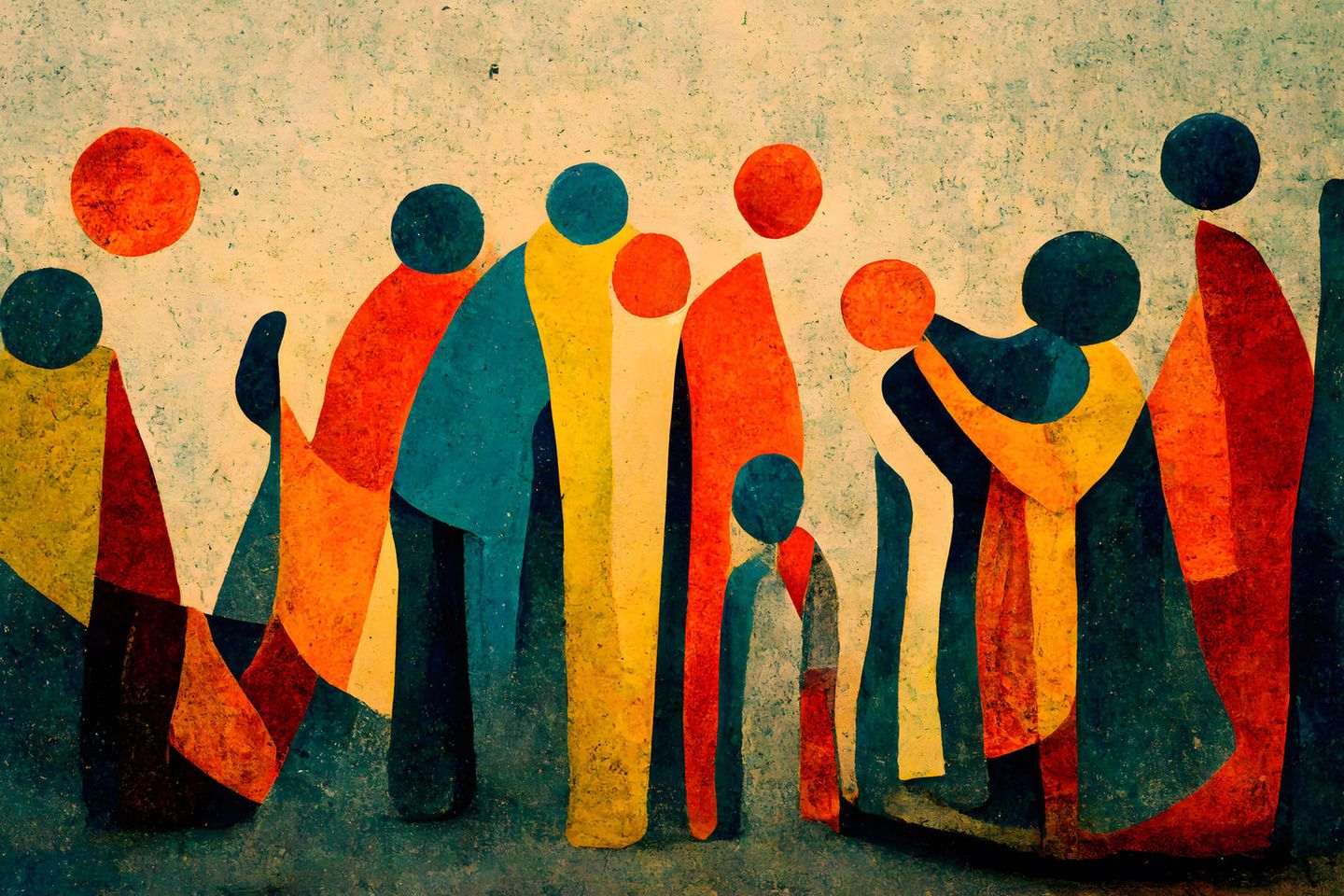psychology
What qualities make an empathetic person
© Augusto / Adobe Stock
You understand your fellow human beings – even if they don’t say a word? Then you probably have an empathic personality type.
A shoulder to lean on. A fine feeling for the feelings of your counterpart. The tendency to think a lot about yourself and those around you. Are you familiar with that?
Empathic – i.e. compassionate – people are sometimes smiled at by a society that values performance and cold logic as particularly valuable attributes. “Too sensitive”, even “soft” are qualities that are often (and wrongly) attributed to compassionate people.
Sensitivity is an issue for empaths in a completely different way, explains marriage and family therapist Kim Egel in an interview with “Healthline”: “Empathetic people are more sensitive to external stimuli such as noise, loud personalities and hectic environments. They bring a lot of heart and caring to the world and feel things very deeply.”
Anyone who knows an empathetic person in their social environment can count themselves lucky on several levels. We’ve collected some signs that indicate that you have a compassionate personality.
Traits that make an empathetic person
A keen sense of the emotions of others, but also a constant danger of being overwhelmed by the feelings of the world – life as an empathic person holds both wonderful and challenging parts. We present three of them.
You have fine antennae for the emotions in the room
You enter a room and immediately notice: something is wrong here, the atmosphere is tense. Maybe someone close to you is sad, maybe there was a heated discussion just before you showed up. You don’t just hear the sharp word – you see the frown, you feel the sadness in the voice.
This clear view of the feelings of others makes you a very important person to your friends. They feel seen and understood in your presence, you feel their joy as well as their anger and sadness and make them feel like they are not alone with their emotions.
It’s not easy for you not to feel
As Therapist Egel’s description suggested, being an empathic person is by no means all beneficial. Your ability to empathize with those around you, to feel their emotions as if they were your own, also puts you at risk of putting their feelings and needs ahead of your own. Your best friend needs your support? You drop everything and rush to her side, because you know exactly how bad she must be – even though you wanted to recharge your own batteries today.
“Emphatics want to help,” therapist Barrie Sueskind told Healthline. But that’s not always possible, which can disappoint you. Such compassionate people find it difficult to see others suffering and have a great need to help and relieve their suffering – even if she threatens to suck it out herself. Over time, this stress can lead to a kind of burnout, like a study has determined.
You also need time to recharge
“An increased sensitivity to other people’s pain can be very draining, so empathic people can tire easily,” says Sueskind. Incidentally, this does not only apply to “negative” emotions – joy and happiness can also exhaust compassionate people.
Even with compassionate people, the tendency to withdraw to recharge their batteries says nothing about whether they are extroverts or introverts. It’s quite possible that you don’t mind a lot of people and lively social interactions – to a point where it feels overwhelming. Therefore, more extroverted empaths in particular should make sure that they find a healthy balance between the time they spend with their fellow human beings and the time they need to recover.
Sources used: hackspirit.com, healthline.com, ncbi.nlm.nih.gov
